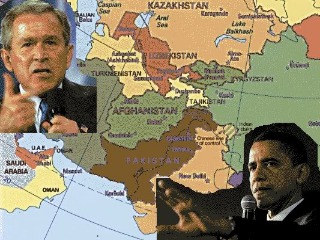Russia Advances Its Position in the South Caucasus
By Armen Grigoryan (the 13/11/2013 issue of the CACI Analyst)
Russia continues to limit Armenia’s capability to make independent political decisions and is planning to increase its military presence in Armenia. Shortly, Azerbaijan and Georgia will face stronger pressure and Russia’s efforts to create a new union of the former Soviet republics will intensify. As Russia is unable to advance its goals through “soft power,” offering no attractive model of governance, democratic political culture, or serious economic benefits, it will increasingly rely on “hard power.” Regional policies devised by the U.S. and EU are becoming insufficient as regional dynamics change and new threats emerge.

Moscow's Appointment of Governors in the North Caucasus
By Valeriy Dzutsev (the 13/11/2013 issue of the CACI Analyst)
One by one, the North Caucasian republics are declining direct elections of governors, instead sticking to the appointment procedure by the President of Russia. Moscow appears to be orchestrating the process to ensure that completely loyal governors are in place in the restive region. Their loyalty, however, comes at the price of greater volatility and lower predictability in the region. Moscow’s policies in the North Caucasus illuminate the crisis of the highly centralized system of governance in Russia. Ironically, regions of Russia that are most adversely affected by the lack of a participatory political system are further deprived of popular voting mechanisms.

Azerbaijan Prepares for Shah Deniz 2
By Mina Muradova (the 13/11/2013 issue of the CACI Analyst)
Azerbaijan is moving from words to action in delivering gas resources from the Caspian Sea to European markets. President Ilham Aliyev has taken the development of the Southern Gas Corridor under his own supervision. A State Commission chaired by First Vice-Premier Eyub Yagubov has been established by a presidential decree and will be responsible for coordinating all issues related to the Shah Deniz project on a government level, as well as the implementation of the South Caucasus Pipeline Expansion Project, the Trans-Anatolian gas pipeline (TANAP) and the Trans Adriatic pipeline (TAP).
“CACI Analyst, October 30, 2013”
AWOL: U.S. Policy in Central Asia
By Stephen Blank (the 30/10/2013 issue of the CACI Analyst)
The U.S. has decided to give up the base at Manas, presumably because that base is not worth retaining once it leaves Afghanistan next year, and will relocate the base to Romania. Washington is instead moving most of its logistics through Pakistan, with a corresponding decline in the use of the Northern Distribution Network. Once U.S. forces leave Afghanistan there will be no military presence in Central Asia to speak of. Second, the TAPI gas pipeline from Turkmenistan through Afghanistan and Pakistan, nominally the centerpiece of America’s New Silk Road initiative, languishes for lack of any financing.






 Book S. Frederick Starr and Svante E. Cornell,
Book S. Frederick Starr and Svante E. Cornell,